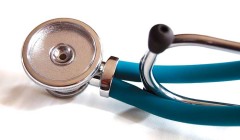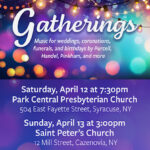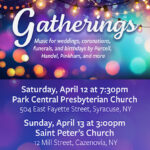Don’t you remember?
The experts claim that one in three Americans will suffer from Alzheimer’s disease. Suffering is a relative word because honestly most of the suffering done with Alzheimer’s is the suffering of the caregivers as the patient themselves is usually unaware of their condition. You suffer through cancer…you suffer through depression…your family members are the ones that suffer when you have severe memory loss. Alzheimer’s is listed as one of the top 6 causes of death in America but before it kills you it takes a toll on you, your dignity, your family, your bank account, etc. Dementia is probably the #1 diagnosis in the nursing home and therefore at $8,000 a month, per patient, it’s probably one of the most expensive diagnosis to treat on a national level. Maybe one of those wildly expensive chemotherapy agents are more expensive but usually they’re used for 6 weeks or 3 months whereas dementia can persist for decades.
I don’t actually use the term Alzheimer’s much…It’s really a diagnosis that can be made with brain evaluation at autopsy and it’s just a name…I prefer to call it by the more practical and less charged name…memory loss.
That’s what I see and that’s what I try to treat. You could call it Alzheimer’s, you could call it Binswanger’s disease, you could call it Lewy body dementia, you could call it senile dementia, you could call it multi-infarct dementia but the bottom line is the person has a functional problem with their memory, usually short-term more than long-term. They might remember the name of their second grade teacher but they sure don’t remember where they left the car keys or that they wrote two checks to the cable company and one to the gas company. There are some new and up-and-coming brain scans that might help decide whether you have in particular the typical Alzheimer’s changes, but it doesn’t matter much since the treatments are all the same. There is no good reliable blood work to aid in diagnosis. Diagnosing dementia is like diagnosing Parkinson’s. It is best done by the same observer evaluating the patient over time and seeing what changes occur. Unfortunately in the modern doctor’s office the typical patient can get in and get out and be quite demented but not picked up by the doctor if he doesn’t ask the right questions. In an office visit with the doctor checking the blood pressure, checking the meds, checking the cholesterol and attending to any issues with the insurance company it’s hard to step back and ask “by the way can you tell me the name of the last 3 presidents? By the way can you remember these 3 words and draw me o’clock etc?” It is not particularly hard to do. You just have to have the time and interest… I have seen many people that were really having a lot of trouble with their memory before it was picked up by their healthcare professional because they didn’t think to ask the right questions. You don’t require a psychologist, or a neurologist, or any specialist to diagnose dementia.
 So dementia is diagnosed by asking patients questions. You can use formal testing like the Mini-cog, or the MMSE, or the SAGE questionnaire, or you can diagnose it informally. Once you look for it, it’s not hard to diagnose. On the other hand many people have mild cognitive impairment and never go on to dementia and it is hard to determine who will progress and who will not, and that’s why it is best managed over time by the same professional doing serial observations.
So dementia is diagnosed by asking patients questions. You can use formal testing like the Mini-cog, or the MMSE, or the SAGE questionnaire, or you can diagnose it informally. Once you look for it, it’s not hard to diagnose. On the other hand many people have mild cognitive impairment and never go on to dementia and it is hard to determine who will progress and who will not, and that’s why it is best managed over time by the same professional doing serial observations.
Now, the treatment for dementia is unfortunately quite limited. None of the current prescription medications cause significant and sustained improvement in cognition. The best we can say is that these medicines keep the patient as they are, and delays deterioration, but even the most ardent user of these medicines, if they look at the literature, realize they lose their efficacy within a year or year and a half. I wanted to be known as a very aggressive dementia doctor and so when the NIH recommended that we use Aricept and then add Namenda that’s what I did. I happily told patient’s I was following the NIH recommendations proving to them that I was an up-to-date well-informed physician. The only problem was this combination didn’t really work well for the vast majority of patients I treated. There might have been a patient here and there that the family said they noticed some improvement temporarily, but it wasn’t common. Additional experience with these medicines over time has continued to disappoint. Not only did these drugs not make a big difference…they also had side effects. My experience has shown me that in point of fact the benefits are quite minimal and the side effects are real, not dangerous but real. I have had many patients stop these pills and either did not deteriorate further or improved off the medicines, so my view of prescription treatment for dementia has been leavened by experience over time. There are also 2 medical foods/nutritional supplements to treat dementia as well and they include Axona and Cerefolin NAC. I like the idea that there would be some vitamin you could use that might actually have a clinical effect because I think there are less side effects with these prescriptions then there are with the other drugs mentioned previously. Unfortunately these nutritional supplements are not usually covered by insurance because they are considered vitamins but they are not available in GNC or Natur-Tyme as they require a prescription from the doctor. Once again although individual families will say this medicine helped or that medicine helped they have not been overwhelmingly successful. Worth a try: yes. Guaranteed to work: absolutely not. I have absolutely no confidence in any nonprescription supplements that are available in the nutrition stores and vitamin stores. Completely unproven and potentially dangerous! Show me a single study done in America using human beings that show some improvement in a double blinded study and I will happily change my tune. So unfortunately, our current armamentarium is quite limited when it comes to treating Alzheimer’s/memory loss and therefore we are left with trying to prevent it, which I think in the long run is much more important…
There are obvious risk factors for dementia and they include smoking, diabetes, hypertension, and being inactive. There are genetic risk factors as well but there is nothing you can do about your genes so we focus on the modifiable factors. So yes, you can directly diminish your risk of dementia by not smoking, not drinking excessive alcohol, controlling your blood pressure and controlling your sugar. I prefer to focus on the couch potato aspect because the studies show that this is one of the most important modifiable risk factors. Besides exercise helping your cholesterol, your blood pressure, your joints, your mood, your fall risk, etc. physical exercise cuts your risk of dementia. Mental exercises are also touted to prevent dementia but the evidence that supports that is very slim. Physically pumping more blood to the brain works…mentally challenging your brain hasn’t been shown to work. It just makes sense to me that if you can open up the arteries to your brain with exercise you can get a little better blood flow and therefore a little better function from the brain. Studies have not shown that mental exercises have a basic and lasting impact but studies have shown that physical exercise seems to be associated with a lower risk for dementia. The mature patients that I see on a regular basis would benefit from exercise for many reasons not just the dementia component. People may be afraid of a heart attack or stroke in some vague way but the fear of dementia seems to strike a stronger chord. They take it a little more personally because they know someone who’s had the problem. Still, knowing about it and actually doing something about it are two different things. Get up off the couch and take a walk regularly…walk over to the local Nursing Home and that will provide you much better motivation than I can with this article. If walking through the halls of the nursing home doesn’t motivate you to get moving while you still can nothing will!
So memory loss can be a terrible problem with life changing consequences for the entire family…meds so far have little effect…but you are not helpless against this scourge…In fact you don’t need special tools, expensive tests, or exotic supplements to ward off memory loss. You just have to move it or lose it. Move your body to prevent losing your mind. So what or who are you waiting for? Until next month…get well…stay well.












